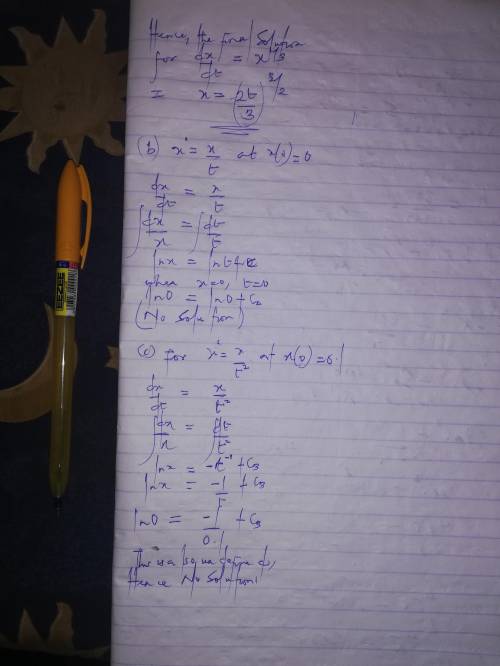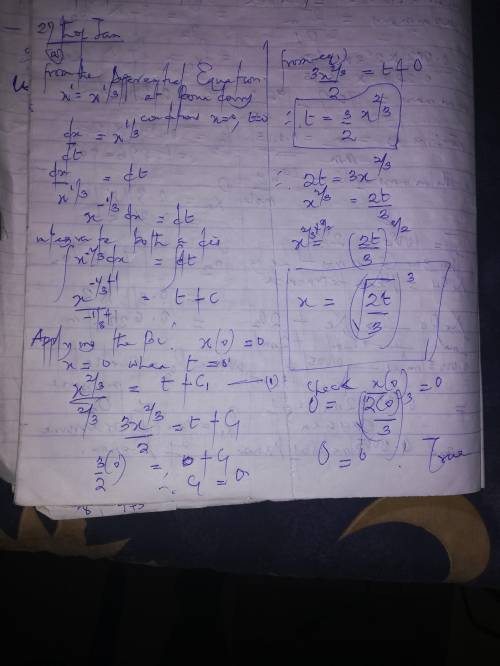
Mathematics, 25.01.2020 02:31, twirlergirl800
First-order differential equations need not have unique solutions satisfying a given initial condition.
(a) prove that there are infinitely many different solutions of the differential equations x' = x^1/3 satisfying x(0) = 0.
(b) discuss the corresponding situation that occurs for x' = x/t, x(0) = x0. (c) discuss the situation that occurs for x' = x/t^2, x(0) = 0. 1

Answers: 3
Other questions on the subject: Mathematics

Mathematics, 21.06.2019 14:30, gabbypittman20
Shania's test scores in 8 subjects were 88, 91, 85, 74, 69, 72, 80, and 87. shania found the middle number of her scores. which type of measure did she find?
Answers: 1


Mathematics, 21.06.2019 19:00, bthakkar25
The following division is being performed using multiplication by the reciprocal find the missing numbers is 5/12 divided by x/3 equals 5/12 times x/10 equals 1/x
Answers: 2
Do you know the correct answer?
First-order differential equations need not have unique solutions satisfying a given initial conditi...
Questions in other subjects:







Biology, 22.07.2019 22:50


English, 22.07.2019 22:50









